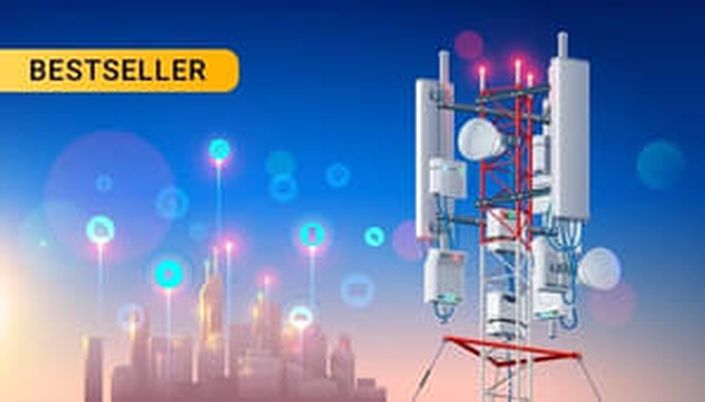Home > Technical Articles > What is the future of 5G technology
What is the future of 5G technology?
The future of 5G technology holds immense potential and is expected to revolutionize various industries and aspects of our daily lives. Here is a detailed explanation of the future prospects and possibilities of 5G technology:
- Enhanced Connectivity: 5G technology will bring unprecedented connectivity to both urban and rural areas. As networks expand, more devices will be able to connect simultaneously, enabling seamless communication between people, devices, and machines. This will pave the way for advanced applications and services such as smart cities, connected vehicles, remote healthcare, and industrial automation.
- Internet of Things (IoT) Revolution: 5G will be a catalyst for the growth of the IoT. With its ability to support a massive number of connected devices, 5G networks will enable seamless communication and data exchange between devices, leading to the proliferation of smart homes, wearable devices, intelligent transportation systems, and other IoT applications. This will drive efficiency, automation, and innovation across various industries.
- Transformative Industrial Applications: 5G technology will play a crucial role in powering Industry 4.0 and digital transformation in sectors such as manufacturing, logistics, agriculture, and energy. The ultra-low latency and high reliability of 5G networks will enable real-time monitoring, predictive maintenance, autonomous systems, and optimized supply chains. This will result in increased productivity, cost savings, and improved operational efficiency.
- Immersive Experiences: 5G will revolutionize the way we consume and interact with media and entertainment. The high-speed and low-latency capabilities of 5G networks will enable seamless streaming of 4K and 8K video content, virtual reality (VR) and augmented reality (AR) applications, and immersive gaming experiences. This will open up new avenues for content creators, broadcasters, and gaming companies to deliver rich, immersive content.
- Edge Computing and Cloud Services: 5G networks will leverage edge computing capabilities, bringing computing power closer to the network edge. This will enable faster data processing, reduced latency, and localized services. Edge computing combined with 5G will support applications that require real-time decision-making, such as autonomous vehicles, smart grid management, and real-time analytics.
- Healthcare and Telemedicine: 5G technology has the potential to transform healthcare delivery and enable remote patient monitoring, telemedicine consultations, and real-time collaboration between healthcare professionals. With its high bandwidth and low latency, 5G will facilitate the seamless transmission of medical data, enhance diagnostic capabilities, and enable remote surgeries and treatments.
- Smart Cities and Sustainable Living: 5G will power the development of smart cities, where connected infrastructure, sensors, and devices work together to enhance efficiency, sustainability, and quality of life. Applications such as smart grids, intelligent transportation systems, smart buildings, and environmental monitoring will enable optimized resource management, reduced energy consumption, and improved urban planning.
- Innovation and Entrepreneurship: The advent of 5G technology will unleash a wave of innovation and entrepreneurship. Startups and businesses will have the opportunity to develop new applications, services, and business models that leverage the capabilities of 5G networks. This will drive economic growth, create new job opportunities, and foster a culture of innovation.
It's important to note that the future of 5G technology will depend on the continued investments in infrastructure, collaboration between stakeholders, regulatory frameworks, and addressing challenges such as security, privacy, and interoperability. However, with its transformative capabilities, 5G technology is expected to shape the future of communication, connectivity, and technology-driven experiences in profound ways.
Here are some of the potential applications of 5G technology:
- Self-driving cars: 5G will be essential for the development of self-driving cars. Self-driving cars need to be able to communicate with each other and with infrastructure in real time in order to operate safely. 5G will provide the necessary bandwidth and low latency to make this possible.
- Remote surgery: 5G will enable surgeons to perform surgery remotely. This will allow surgeons to operate on patients who are located in remote areas or who have complex medical conditions that require specialized care.
- Augmented reality: 5G will enable augmented reality (AR) to be used in a variety of applications, such as gaming, education, and training. AR can be used to create immersive experiences that can help people learn new things or improve their skills.
- Virtual reality: 5G will enable virtual reality (VR) to be used in a variety of applications, such as gaming, entertainment, and training. VR can be used to create immersive experiences that can transport people to new worlds or help them learn new things.
- Internet of Things (IoT): 5G will enable the Internet of Things (IoT) to become more widespread. IoT refers to the network of physical devices that are connected to the internet. 5G will provide the necessary bandwidth and low latency to support the large number of connected devices that are expected to be deployed in the coming years.
These are just a few of the potential applications of 5G technology. As 5G networks are deployed and the technology matures, we can expect to see even more innovative and groundbreaking applications emerge
Featured 6G, 5G Training Courses and Certifications
TELCOMA Global is a leader in Telecom Training Courses and Certifications since 2009. Learn the trending technological skills in 6G, 5G, 4G-LTE, IoT, Machine Learning, and Artificial Intelligence (ML/AI), Cloud and microservices, ORAN, Edge Computing, etc and get hired in the world's best Telecom companies. Discover the fastest, most effective way to gain job-ready expertise for the careers of the future. With TELCOMA Certification, you can be the Telecom professional employers seek.

